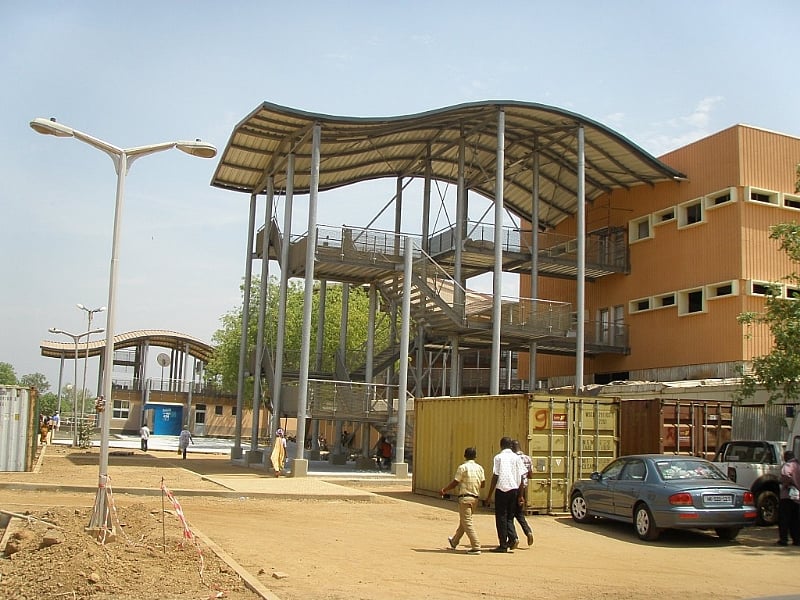The recent death of a patient at Tamale Teaching Hospital has sparked a heated debate about the challenges facing Ghana’s healthcare system, highlighting the precarious position of healthcare professionals caught between resource limitations and public expectations. The incident, which involved the referral and subsequent death of a patient due to the unavailability of a specialized procedure and a lack of beds in the Emergency Unit, triggered a confrontation between the Health Minister, Kwabena Mintah Akandoh, and the Head of the Accident and Emergency Department. Videos of the exchange went viral, leading to widespread criticism of the doctor, a situation that has prompted the Doctors Association of Tamale Teaching Hospital (DATTH) to issue a strong statement defending their colleague and condemning the manner in which he was publicly questioned.
The core issue at the heart of this controversy is the increasing tendency to blame healthcare professionals for systemic failures. DATTH argues that doctors are being unfairly vilified for negative outcomes that are often beyond their control, particularly when essential resources are lacking. They point to the incident as a prime example, where the unavailability of a necessary procedure and the critical shortage of beds directly contributed to the patient’s death. The doctors are not shirking their responsibility to provide the best possible care, but rather emphasizing the limitations imposed upon them by a system struggling to meet basic needs. This leaves them in an impossible position, expected to perform miracles without the necessary tools, and then facing public censure when those miracles fail to materialize.
The public interrogation of the Head of the Accident and Emergency Department, captured in the widely circulated videos, has further exacerbated the situation. DATTH argues that this public questioning, conducted in the presence of the Health Minister and a Member of Parliament, was inappropriate and served to unfairly target their colleague. They contend that the doctor, who they describe as diligent and professional, became a scapegoat for deeper systemic issues. The Association emphasizes that such public displays of reprimand not only demoralize healthcare workers but also contribute to a climate of fear and distrust, ultimately hindering the delivery of effective healthcare.
The media’s role in this controversy has also come under scrutiny. DATTH criticized the media’s portrayal of the incident, alleging that the coverage presented a biased and incomplete picture, focusing on the doctor’s perceived shortcomings while neglecting the broader context of resource deficiencies. This selective reporting, according to the Association, has tarnished the image and reputation of their colleague and unfairly cast him as the primary reason for the tragic outcome. They argue that a more balanced and nuanced approach is necessary, one that acknowledges the complex interplay of factors contributing to such incidents, rather than simply assigning blame to individuals.
The DATTH statement goes beyond defending their colleague; it serves as a broader warning about the potential consequences of this escalating trend of blaming healthcare professionals for systemic failures. The Association expressed concerns about the impact on morale and threatened potential disruptions to healthcare services if the situation continues. This warning highlights the deep-seated frustration and disillusionment felt by healthcare workers who find themselves caught in the crossfire between public expectations and a resource-strained system. They are essentially saying that if the system continues to fail them and they are continually held accountable for those failures, they may be forced to take actions that could disrupt the provision of healthcare services.
This incident at Tamale Teaching Hospital underscores the urgent need for a comprehensive reassessment of Ghana’s healthcare system. It is not enough to address individual cases of patient mortality without tackling the underlying issues of resource allocation, infrastructure development, and staff support. Blaming individual healthcare professionals without addressing these systemic challenges is not only unjust but also counterproductive, contributing to a cycle of blame and disengagement that ultimately compromises the quality of care for all. The DATTH’s warning serves as a powerful reminder that a healthy healthcare system requires a collaborative approach, where healthcare professionals, policymakers, and the public work together to create an environment that fosters quality care and supports those who dedicate their lives to providing it. This includes recognizing the constraints within which healthcare workers operate and ensuring that they have the resources they need to effectively fulfill their duties. Ignoring this warning could have serious consequences for the future of healthcare in Ghana.














